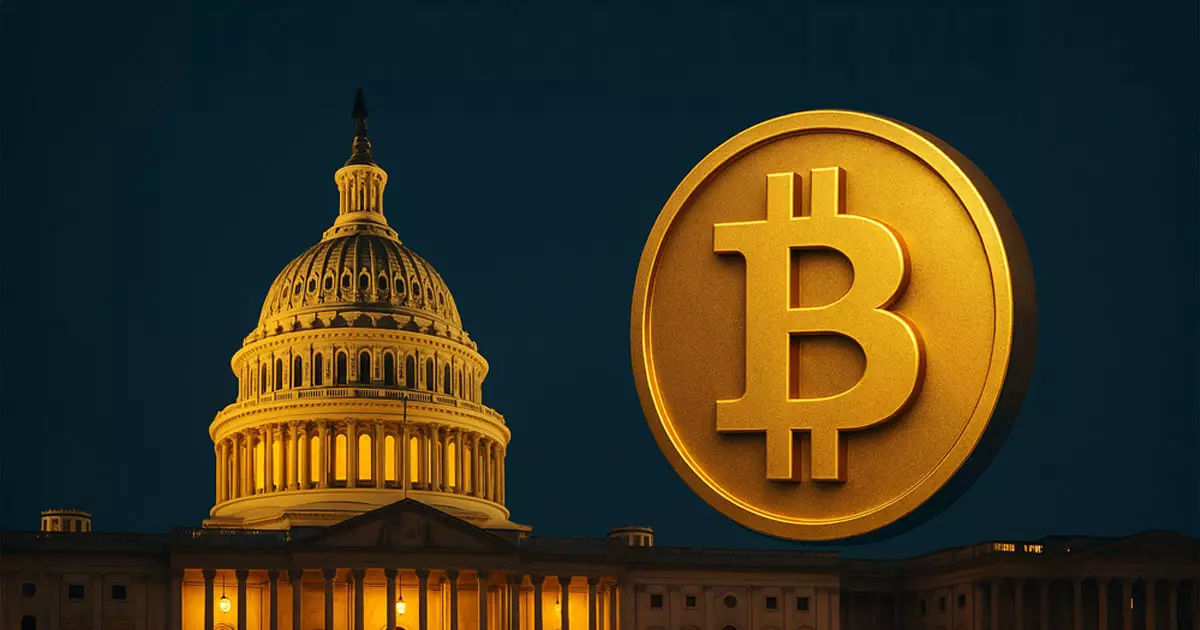Despite their claims of championing innovation, the recent emergence of a coalition of corporate Bitcoin holders underscores a strategic repositioning of financial influence that is anything but benign. Led by high-profile executives from companies like Strategy, MARA, and Riot, this Treasury Council eloquently masks the underlying motive: consolidating power in the hands of a small elite through a digital asset tentacle that extends into government policy. These executives, cloaked in a veneer of technological progress, are in reality leveraging their wealth and influence to pivot the Federal government’s stance toward Bitcoin—one that could reshape the very foundation of American fiscal policy. Their push for legislative support, including backing for the so-called BITCOIN Act, signals a calculated effort to entrench private sector interests within the corridors of government decision-making. As these corporate actors lobby for the federal acquisition of vast Bitcoin reserves, we must question whether this is genuine progress or a calculated power grab disguised as financial innovation.
The Political Playbook: Co-opting Federal Authority for Private Gain
The initiative to create a strategic Bitcoin reserve, partially funded by Fed reserves and government earnings, reveals a disturbing alignment between private corporate ambitions and public policy. This isn’t merely about adopting new technology; it’s about fundamentally altering the government’s role in managing monetary assets. The legislation proposes holding up to $116 billion worth of Bitcoin and mandates storing the digital assets for at least two decades, effectively creating a government-controlled crypto fortress. Such measures threaten to blur the lines between state and corporate sovereignty, empowering a select few with unprecedented control over the nation’s financial reserves. Furthermore, the limited scope of this digital reserve—focused on seizing forfeited Bitcoin rather than proactive acquisition—displays a vacuum of true strategic foresight and reveals an underlying reluctance to embrace the full potential of digital assets as a national resource. Instead, it hints at a power structure that seeks to harness the allure of revolutionary finance without the transparency or accountability that should accompany such a sweeping shift.
Does Bitcoin Really Level the Playing Field—or Reinforce Elite Domination?
While advocates portray Bitcoin as a democratizing force promising decentralized wealth, the reality unfolding appears far more elitist. The coalition’s influence over policy, coupled with a handful of corporate giants holding immense Bitcoin reserves, indicates that this movement primarily benefits those already positioned at the apex of the financial pyramid. These corporate entities are advocating for policies that could cement their dominance, turning Bitcoin into a tool for further entrenching economic disparity rather than addressing it. Moreover, the proposed government involvement risks establishing a siloed, opaque crypto reserve that benefits insiders while sidelining everyday citizens from meaningful participation. What seems to be a push for innovation is, in truth, a calculated effort by a select few to control a digital economy that could eclipse traditional financial systems—an outcome that warrants skepticism and close scrutiny.
The Danger of Government-Corporate Collusion in the Digital Age
The fusion of corporate power and government policymaking around Bitcoin raises profound concerns about the future of democratic oversight. Instead of safeguarding the interests of the public, this alliance prioritizes a digital gold rush that may very well serve corporate agendas under the guise of national strategic interests. The involvement of lawmakers who have co-sponsored legislation, along with the President’s executive order on a digital asset reserve, signifies an unsettling drift towards state-sanctioned financial assets designed and manipulated by a tight-knit elite. If unchecked, this could lead to a scenario where digital assets become yet another arena where access and influence are exclusively reserved for those with significant resources—further widening the socio-economic gap. The promise of technological progress devolves into a tool for power consolidation, which I believe could undermine the very stability and equity that free-market ideals champion.
The ongoing efforts reveal that the true threat behind corporate Bitcoin enthusiasm isn’t innovation but an insidious concentration of control that could redefine America’s financial independence in favor of a select few, rather than a resilient, inclusive economy.



















Leave a Reply